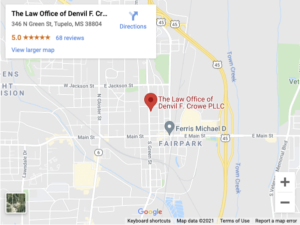Filing Bankruptcy Stops Garnishments!
Many times, the biggest pressure on you is the garnishment a creditor, the IRS or State Revenue Office has in place. A garnishment that is taking out of your wages and away from your family money that is desperately needed to take care of you and your family. Filing bankruptcy stops garnishments cold. As soon as the creditor finds out about your bankruptcy (other than child support), it is supposed to act immediately to stop the garnishment. How powerful is that? It does NOT matter what kind of debt you owe (other than child support). The garnishment must stop. You may still owe if it is a tax debt, but with the garnishment stopped and the other powers bestowed upon you by filing bankruptcy, you are in a better position to deal with that tax on terms you can afford, with you in control instead of them. If the tax is a certain type of tax that you can get rid of in bankruptcy or an unsecured creditor, then that is the end of the garnishment forever.
A Lot of IRS Income Taxes Are Dischargeable:
Next, if your problem is Income Taxes (as opposed to something like Withholding taxes), we first look to see how old it is. Why? If the taxes you owe are more than 3 years old, you may not have to pay them back at all. Let us repeat that. You may not have to pay it back at all. Most people and even some bankruptcy attorneys don’t know this but the fact is that certain older taxes are “dischargeable” which means you can get rid of it by filing bankruptcy and not pay it back ever. There are 4 rules to apply to see if your back income taxes are dischargeable but fortunately, for you we know the rules inside and out. We apply these rules all the time and we also know how to get dead-accurate information from the IRS itself to verify what you owe and whether it is dischargeable under these four rules.
Suffice it to say, we get rid of thousands of dollars in income taxes for our clients every year.
What About Taxes That I Can’t Get Rid Of?
We can get you up to 60 months to pay it back. This assumes you file the “Loan Consolidation” type of Bankruptcy case. This is also called a “Chapter 13 case.”
What does this mean? It means you can get the IRS off your back for 60 months. It means you can set up payments that may be affordable. For instance, if you owe the IRS $12,000.00 in “non-dischargeable” taxes, you can in most cases force the IRS to take payments of as little as $52 per week. In most cases, you can also force the IRS to take payments without adding interest. That’s a lot better than just worrying and a lot better than having the IRS grab your stuff or place a levy on your bank account or worse. It is a lot better than having the IRS garnish your wages and a whole lot better than having to come up with $12,000 in cash.



